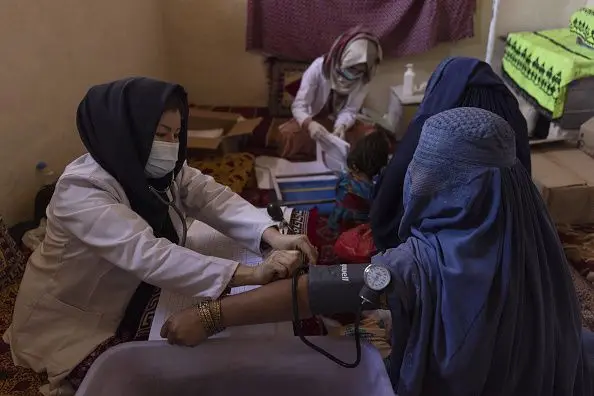RASC News Agency: A growing number of doctors, particularly female medical professionals, alongside other healthcare staff in Kandahar, have been forced to abandon their posts due to relentless Taliban restrictions and oppressive workplace policies. Reports sent to Afghan diaspora media reveal that systematic harassment, arbitrary rules, and a lack of transparency have created an environment of deep confusion, despair, and professional disillusionment.
According to these accounts, female doctors face daily pressure regarding compliance with Taliban-imposed dress codes and the mandatory presence of a male guardian (mahram). Many have resigned, citing an inability to continue working under such restrictions. In Kandahar hospitals, the requirement for a mahram to remain with female staff throughout the day has become an insurmountable barrier, as numerous doctors either do not have a mahram or have husbands and brothers engaged in full-time work who cannot accompany them during entire shifts.
Compounding the problem, Taliban directives regarding hijab compliance are inconsistent and confusing. Female medical staff are now instructed to wear only face masks, while the use of chadors or full veils is prohibited. These erratic policies, coupled with intimidation and punitive oversight, have prompted many women to leave their positions and retreat from public life, effectively removing highly skilled professionals from the healthcare sector in Kandahar.
Male doctors and other healthcare staff have also expressed growing frustration over the arbitrary, unprofessional, and sometimes punitive regulations enforced by the Taliban. Several male staff members have resigned in protest, citing the untenable working conditions and the regime’s interference in professional medical practices.
Healthcare workers have appealed to the Taliban Ministry of Public Health, demanding an immediate end to what they describe as humiliation, harassment, and irrational restrictions. “Every doctor, nurse, and healthcare worker in Kandahar hospitals is exhausted and disheartened by the Taliban’s interference in our work,” one senior physician, requesting anonymity for safety reasons, stated.
This crisis is part of a broader pattern of systemic oppression of women under Taliban rule, which has intensified over the past four years. The regime has not only restricted professional opportunities for women but also curtailed their basic freedoms, mobility, and access to essential services, creating a multifaceted humanitarian and public health crisis.
The exodus of female medical professionals now threatens the very functioning of Kandahar’s hospitals. Local healthcare facilities are already facing severe staff shortages, which jeopardize public health, emergency care, and basic medical services for thousands of residents. Experts warn that unless the Taliban lift oppressive restrictions, the province could face a catastrophic collapse of its healthcare infrastructure, with severe consequences for maternal and child health, disease prevention, and emergency response.
This situation underscores the Taliban’s failure to govern responsibly. By enforcing discriminatory and ideologically driven policies, the regime is actively undermining public welfare and systematically depriving Afghanistani citizens of essential health services, demonstrating a clear disregard for human rights, professional integrity, and national well-being.
In essence, the resignations of doctors in Kandahar reflect not only the immediate impact of Taliban restrictions on healthcare but also a larger, alarming trend of institutional decay under a regime that prioritizes ideological control over the survival and development of its people. If such policies continue unchecked, the consequences will extend far beyond Kandahar, threatening the health, education, and future of Afghanistan’s entire population.






